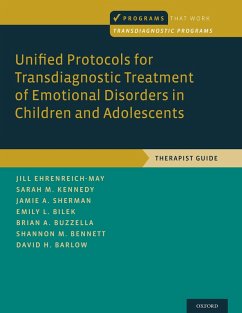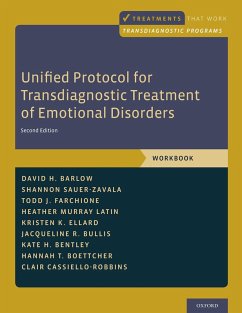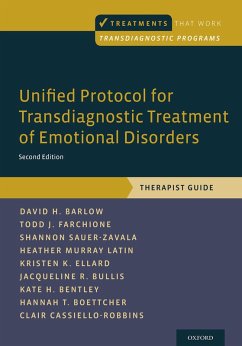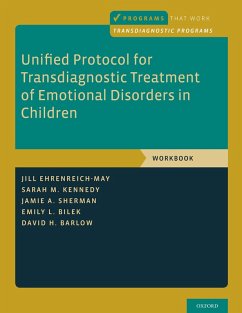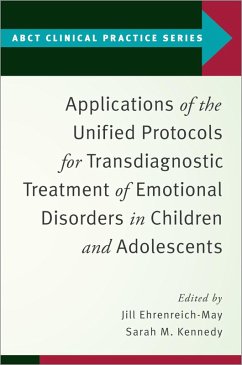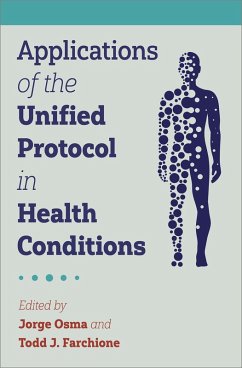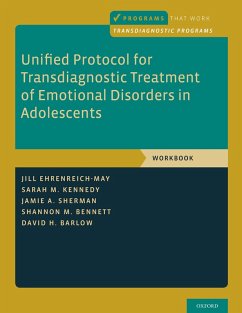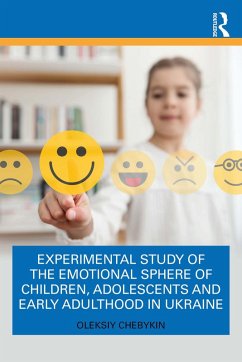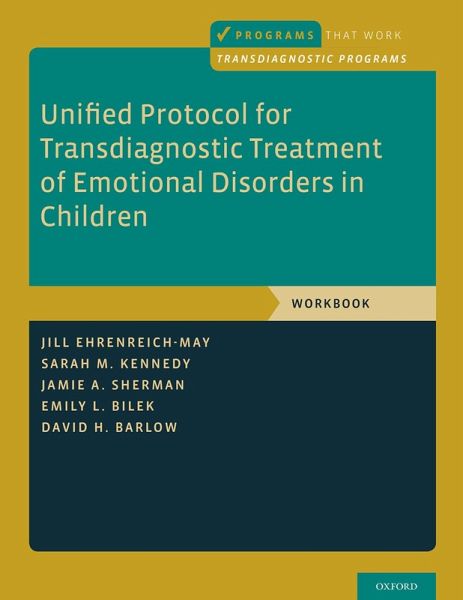
Unified Protocol for Transdiagnostic Treatment of Emotional Disorders in Children (eBook, PDF)
Workbook

PAYBACK Punkte
14 °P sammeln!
Cognitive behavior therapy (CBT) is arguably the most effective psychotherapy model for children and adolescents with emotional disorders (e.g., anxiety, depression, obsessive-compulsive disorders, trauma and stress-related disorders, etc.). Emotional disorders in youth frequently overlap or co-occur, and yet many of the existing, effective therapies available for children and adolescents with emotional disorders target just one or a smaller subset of these problems. The Unified Protocols for Transdiagnostic Treatment of Emotional Disorders in Children and Adolescents, based in groundbreaking ...
Cognitive behavior therapy (CBT) is arguably the most effective psychotherapy model for children and adolescents with emotional disorders (e.g., anxiety, depression, obsessive-compulsive disorders, trauma and stress-related disorders, etc.). Emotional disorders in youth frequently overlap or co-occur, and yet many of the existing, effective therapies available for children and adolescents with emotional disorders target just one or a smaller subset of these problems. The Unified Protocols for Transdiagnostic Treatment of Emotional Disorders in Children and Adolescents, based in groundbreaking research from Jill Ehrenreich-May, David H. Barlow, and colleagues, suggest that there may be a simpler and more efficient method of utilizing effective strategies, such as those commonly included in CBT, in a manner that addresses the broad array of emotional disorder symptoms in children and adolescents. The child and adolescent Unified Protocols do this by framing effective strategies in the general language of strong or intense emotions, more broadly, and by targeting change through a common lens that applies across emotional disorders. Specifically, the child and adolescent Unified Protocols help youth by allowing them to focus on a straightforward goal across emotional disorders: reducing intense negative emotion states by extinguishing the distress and anxiety these emotions produce through emotion-focused education, awareness techniques, cognitive strategies, problem-solving and an array of behavioral strategies, including a full-range of exposure and activation techniques. The Unified Protocol for children and adolescents comprises a Therapist Guide, as well as two Workbooks, one for children, and one for adolescents.
Dieser Download kann aus rechtlichen Gründen nur mit Rechnungsadresse in A, B, BG, CY, CZ, D, DK, EW, E, FIN, F, GR, HR, H, IRL, I, LT, L, LR, M, NL, PL, P, R, S, SLO, SK ausgeliefert werden.





